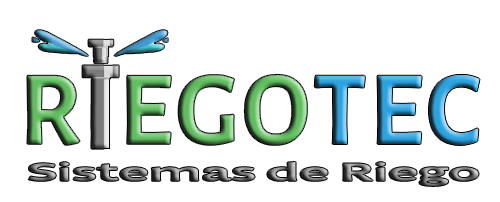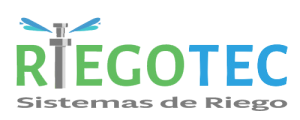Sistemas de Riegos automáticos utilizando la más alta calidad en equipos y servicio técnico.

Servicios
Nos encargamos de la planificación, proyección, ejecución, puesta en marcha y servicio post-venta.
Jardines y Campos Deportivos
Realizamos el proyecto en la modalidad tipo llave en mano, diseñamos sistemas para:
- Jardines y áreas verdes.
- Campos deportivos (Golf, tenis, futbol, etc).
Estamos presente a todo el proceso de implementación del sistema de riego, lo que incluye:
- Asesoramiento sobre el sistema de riego ideal para el área.
- Dimensionamiento del sistema de riego.
- Trabajos de instalación.
- Puesta en marcha y capacitación sobre uso al cliente.
- Garantía de funcionamiento y servicio Post-Venta
Riego por Aspersión
Para el correcto mantenimiento del jardín, uno de los factores básicos es un buen sistema de riego. La instalación de sistemas de riego por aspersión automáticos, dependiendo de las condiciones existentes, es garantía de que el jardín recibirá la cantidad de agua necesaria para su correcta manutención.
El sistema de riego por aspersión consiste en aplicar el agua en forma de lluvia sobre la totalidad de superficie a regar mediante el uso de aspersores y/o difusores. Garantiza que toda la superficie se riega y se optimiza el agua, ya que se puede programar el tiempo de riego. Contamos con sistemas que programan automáticamente el tiempo de riego más eficiente, teniendo en cuenta el pronóstico del tiempo local.
Riego por Goteo
El sistema aporta gota a gota el agua necesaria para el desarrollo de la planta. A diferencia del riego tradicional y de la aspersión, aquí el agua se conduce desde el depósito o la fuente de abastecimiento a través de tuberías y en su destino se libera gotas justo en el lugar donde se ubica la planta.
El agua se infiltra en el suelo o jardín vertical u horizontal, produciendo una zona húmeda restringida a un espacio concreto. Espacio que funciona en vertical y horizontal creando las condiciones ideales de humedad.
El auténtico avance del Riego por Goteo ha sido conseguir mantener la humedad necesaria en la zona radicular de cada planta, y sólo en esa zona. Por consiguiente no se moja todo el suelo sino parte del mismo, y sólo en la parte necesaria para el desarrollo de las raíces.
El nivel de humedad variará, según las características del suelo, la cantidad de agua y el tiempo que se active el sistema. Como consecuencia y, al acotar la superficie humedecida, las raíces limitan su expansión a ese espacio y no a otro.
Sistemas de Supresión de Polvo
Los sistemas de supresión de polvo son un factor extremadamente importante para los requisitos ambientales, de salud y seguridad, al tiempo que ayudan y protegen a las personas, los empleados y reducen las emisiones en el sitio.
Contamos con las soluciones ideales para cada aplicación que requiere una supresión del polvo generado a partir de procesos industriales u otra fuente.
La supresión es donde los volúmenes bajos de agua se atomizan a alta presión para crear una niebla fina que puede capturar efectivamente el polvo en el aire. Aunque se agrega algo de humedad al material, los volúmenes son mucho más bajos. La supresión es una solución mucho más enfocada y solo se aplica en áreas de problemas específicos.
Riego por PIVOT
Los sistemas de riego mediante pívots son sistemas de riego móviles que permiten regar grandes superficies. Han evolucionado notablemente y atendiendo a su carácter mecánico podemos diferenciar: Pívot circular, trasladable, córner y lateral.
Ventajas:
- No hay obstáculos en la parcela
- Uniformidad del riego del 95%
- Menor vulnerabilidad al viento
- A partir de determinada superficie es económicamente más rentable.
RIEGO 4.0, Supervisión y control de sistemas de riego y redes de agua a través de sistemas SCADA.
Cuando la instalación cuenta con sistemas de riego descentralizados, se dificulta el control y monitoreo de dichos sistemas de forma inmediata y eficaz.
Desarrollamos sistemas basado en controladores programables y sistema de monitoreo SCADA con el fin de centralizar todos los sistemas de riego con que cuenta el cliente. El sistema centralizado de control y monitoreo de riego permite programar sistemas de riego automático localizados en diferentes lugares desde una Computadora.
El sistema de control y monitoreo SCADA se comunicará con los controladores programables vía radiofrecuencia, GSM o Internet para la recepción y envío de señales. El sistema centraliza toda la información y la disponibiliza en una computadora, Tablet o Smartphone
